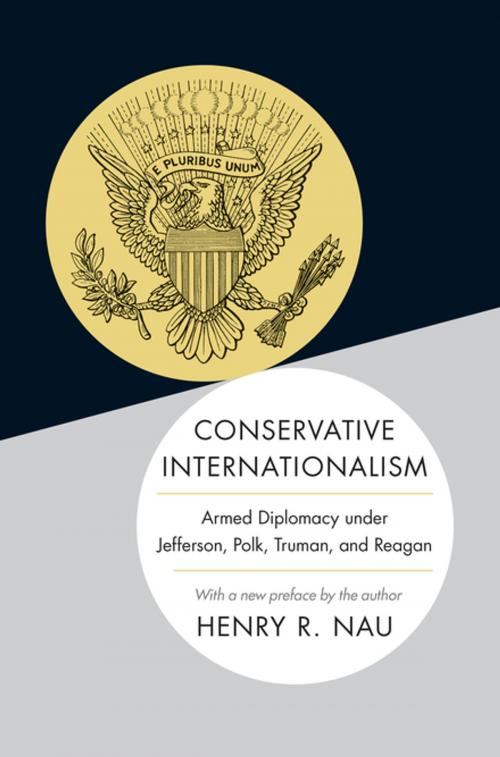Conservative Internationalism
Armed Diplomacy under Jefferson, Polk, Truman, and Reagan
Nonfiction, Social & Cultural Studies, Political Science, International, International Relations, Politics, History & Theory| Author: | Henry R. Nau | ISBN: | 9781400873722 |
| Publisher: | Princeton University Press | Publication: | August 25, 2015 |
| Imprint: | Princeton University Press | Language: | English |
| Author: | Henry R. Nau |
| ISBN: | 9781400873722 |
| Publisher: | Princeton University Press |
| Publication: | August 25, 2015 |
| Imprint: | Princeton University Press |
| Language: | English |
Debates about U.S. foreign policy have revolved around three main traditions--liberal internationalism, realism, and nationalism. In this book, distinguished political scientist Henry Nau delves deeply into a fourth, overlooked foreign policy tradition that he calls "conservative internationalism." This approach spreads freedom, like liberal internationalism; arms diplomacy, like realism; and preserves national sovereignty, like nationalism. It targets a world of limited government or independent "sister republics," not a world of great power concerts or centralized international institutions.
Nau explores conservative internationalism in the foreign policies of Thomas Jefferson, James Polk, Harry Truman, and Ronald Reagan. These presidents did more than any others to expand the arc of freedom using a deft combination of force, diplomacy, and compromise. Since Reagan, presidents have swung back and forth among the main traditions, overreaching under Bush and now retrenching under Obama. Nau demonstrates that conservative internationalism offers an alternative way. It pursues freedom but not everywhere, prioritizing situations that border on existing free countries--Turkey, for example, rather than Iraq. It uses lesser force early to influence negotiations rather than greater force later after negotiations fail. And it reaches timely compromises to cash in military leverage and sustain public support.
A groundbreaking revival of a neglected foreign policy tradition, Conservative Internationalism shows how the United States can effectively sustain global leadership while respecting the constraints of public will and material resources.
Debates about U.S. foreign policy have revolved around three main traditions--liberal internationalism, realism, and nationalism. In this book, distinguished political scientist Henry Nau delves deeply into a fourth, overlooked foreign policy tradition that he calls "conservative internationalism." This approach spreads freedom, like liberal internationalism; arms diplomacy, like realism; and preserves national sovereignty, like nationalism. It targets a world of limited government or independent "sister republics," not a world of great power concerts or centralized international institutions.
Nau explores conservative internationalism in the foreign policies of Thomas Jefferson, James Polk, Harry Truman, and Ronald Reagan. These presidents did more than any others to expand the arc of freedom using a deft combination of force, diplomacy, and compromise. Since Reagan, presidents have swung back and forth among the main traditions, overreaching under Bush and now retrenching under Obama. Nau demonstrates that conservative internationalism offers an alternative way. It pursues freedom but not everywhere, prioritizing situations that border on existing free countries--Turkey, for example, rather than Iraq. It uses lesser force early to influence negotiations rather than greater force later after negotiations fail. And it reaches timely compromises to cash in military leverage and sustain public support.
A groundbreaking revival of a neglected foreign policy tradition, Conservative Internationalism shows how the United States can effectively sustain global leadership while respecting the constraints of public will and material resources.















